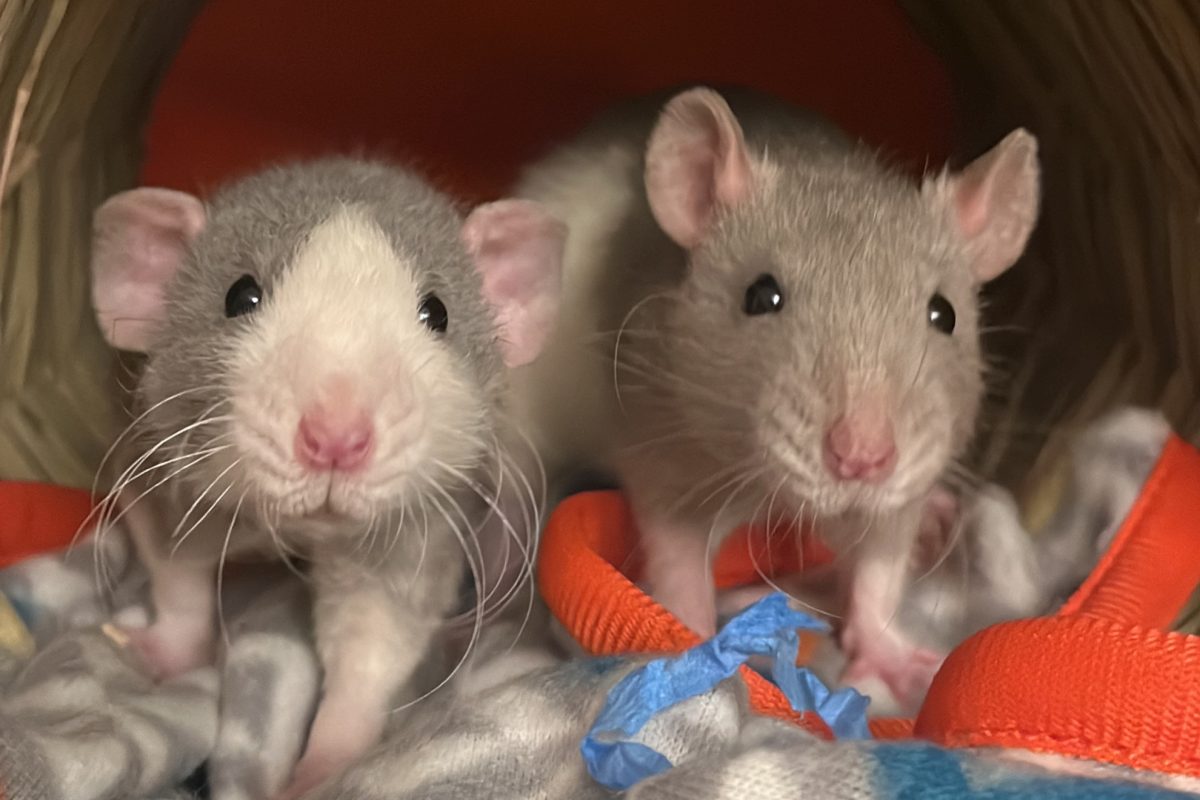I’ve had five pet rats in my life. Every chance I get, I love to brag about my wonderful pets and show the world they are not scary. I understand why people have an aversion to rats. It’s kind of ingrained in us, this negative view of the rodent. They are dirty, they carry diseases, and they are hostile; at least that is what is taught to us. I will even admit that when I was younger, I was very afraid of mice and rats, jumping up on tables or chairs to flee from them. Even in one of my favorite movies, Fantastic Mr. Fox by Wes Anderson, the rat character is an antagonist. However, the thing about rats is that they are nothing like what we have been told. I would like to deconstruct these myths and present my favorite rat qualities to hopefully sway you to the stance that rats are one of the best pets a person can own.
Myth: Rats are dirty!
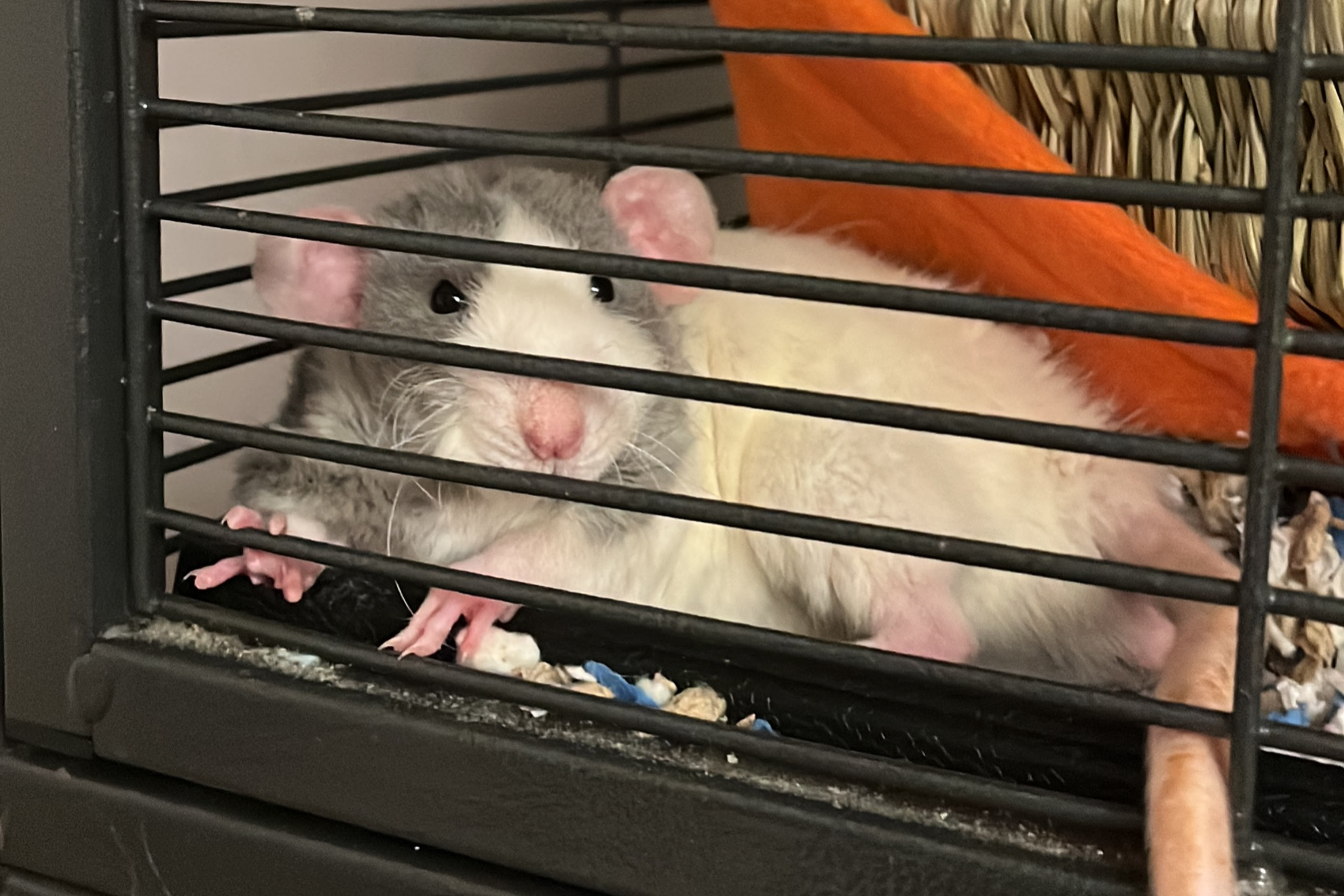
Anyone who has owned a pet rat will know that rats are very clean creatures. Rats groom themselves and their companions multiple times a day. My rats will sometimes stop in the middle of playing to tidy themselves up before hopping back into action. When you see a rat rubbing their faces or seemingly nibbling on themselves, they are actually cleaning themselves.
Julia Graham of Cummings School of Veterinary Medicine is, of course, a veterinarian with a doctorate degree in vet medicine. As someone who is around animals 24/7, Graham attests in an article by Tufts Now that says, “People often think of rats as dirty sewer creatures, but they’re actually quite clean and good about grooming,” and a fact I will always parrot about these furry friends: “Rats groom more frequently and thoroughly than cats.”
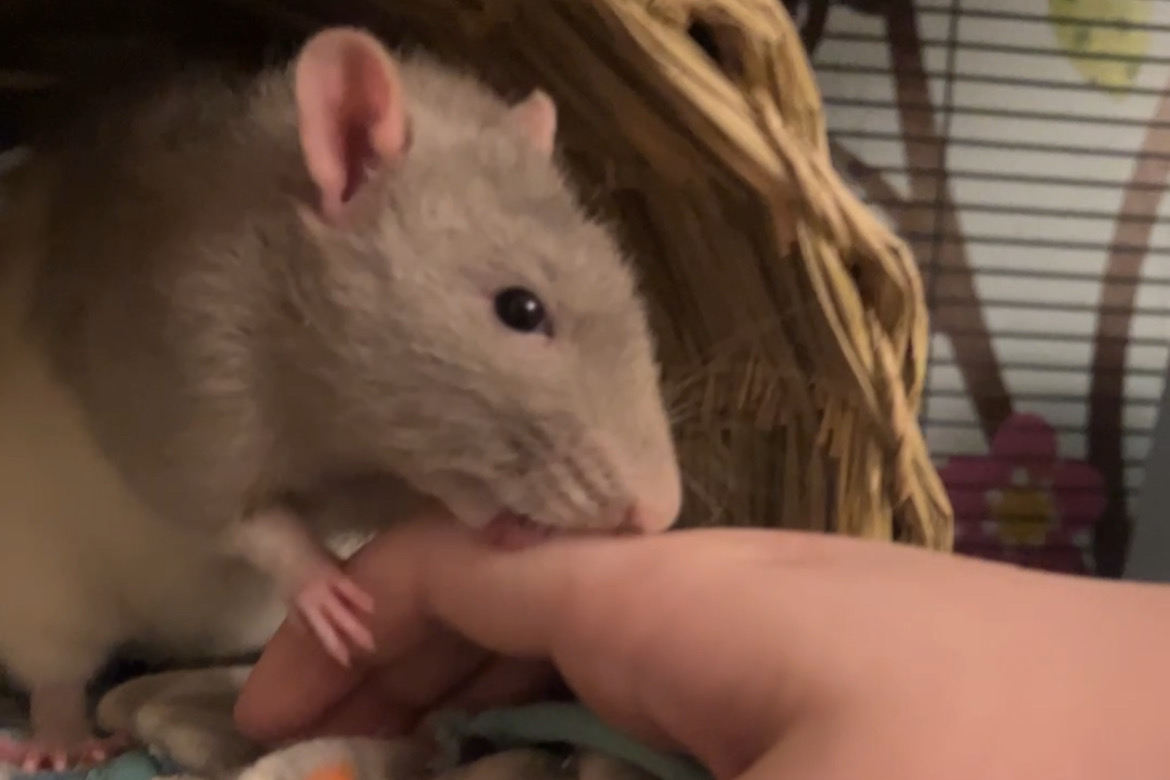
Additionally, rats can easily be trained to use a litter box, something many rat owners make use of. In short, as long as you as an owner who keeps up with cage cleaning, you will have one of the cleanest pets out there. While their cages may not be very pleasant smelling when left uncleaned, rats themselves smell pretty good! Naturally, my two boys smell like oats. If rats are presented with a mint plant (or other plants with pleasant odors), they will utilize it to clean themselves and make themselves smell nicer.
Many people who push the argument of rats’ uncleanliness say that rats spread the bubonic plague. This only contains a partial truth. The truth is that rodents could not carry the plague for any long period of time. The environment of medieval Europe did not permit long-term survival of the plague within rats. Rats were not where the plague incubated, it was more likely human error and repeated introduction to the illness. Yes, rats could carry and spread the disease, but not nearly enough to be the cause of the black plague.
Myth: Rats are not intelligent
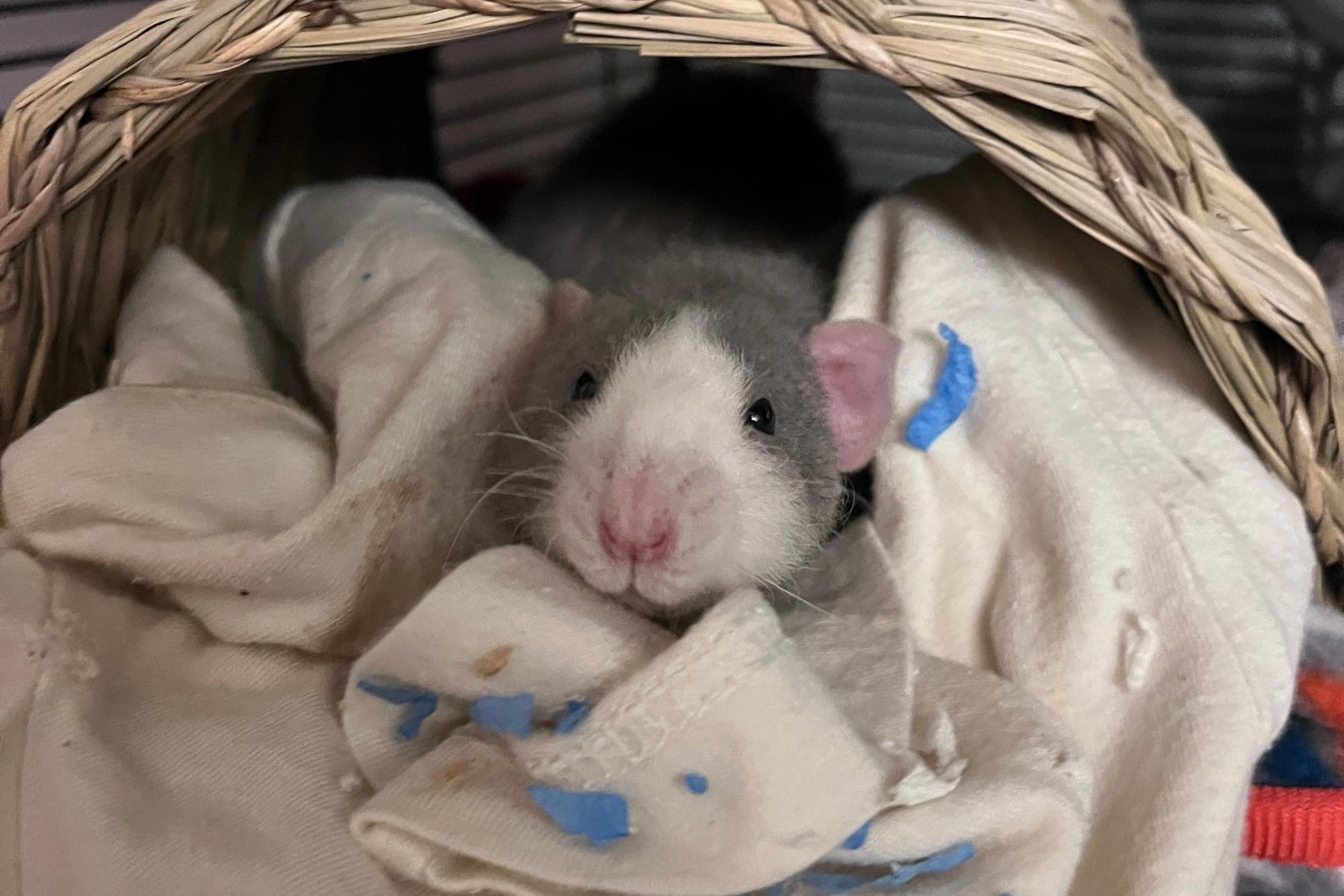
In the media, rats are very often portrayed as clumsy, animals who only surf from meal to meal. In actuality, rats are considered some of the most intelligent animals on earth.
Burgess Pet Care introduces rat intelligence with a very striking fact saying, “Did you know that, along with chimpanzees, bottlenose dolphins, elephants, dogs, pigs, pigeons and octopuses, rats are considered by experts to be one of the smartest species on the planet?” Rats are extremely skilled when it comes to problem solving, pattern recognition, counting and more.
Though not exactly the same as the rats we are used to, African giant pouched rats have successfully been trained to sniff out landmines and other explosives. In fact, one rat named Magawa sniffed out over 100 explosives in his life. Magawa was awarded a gold medal of honor by People’s Dispensary for Sick Animals (or PDSA) for his service. He saved countless human and animal lives in his days as a landmine sniffing rat, and he stands a testament to the intelligence of rats.
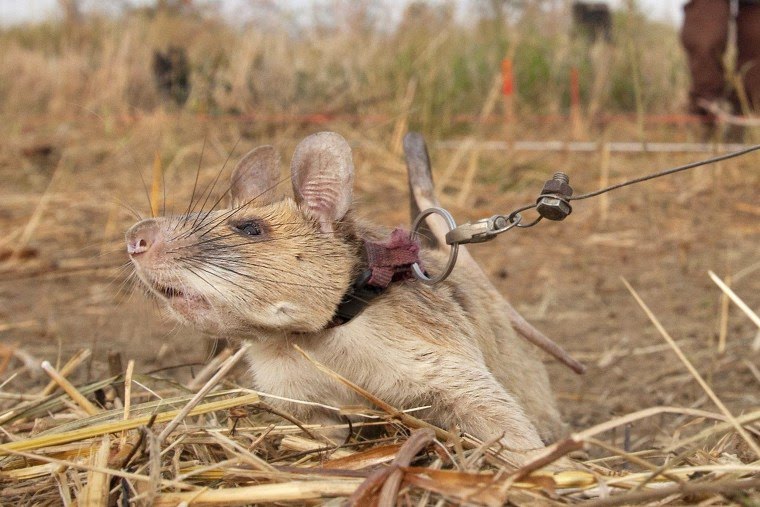
Similarly, rats have been trained to find survivors when disaster strikes, aiding in search and rescue operations and saving lives in the process. They scour through debris at the site of calamity and are outfitted with “audio-visual communication” devices as backpacks to aid rescue workers.
Rats are in constant need of stimulation because of their intelligence. House rats love learning tricks, navigating mazes, completing obstacle courses and doing puzzles.
Myth: Rats are unempathetic
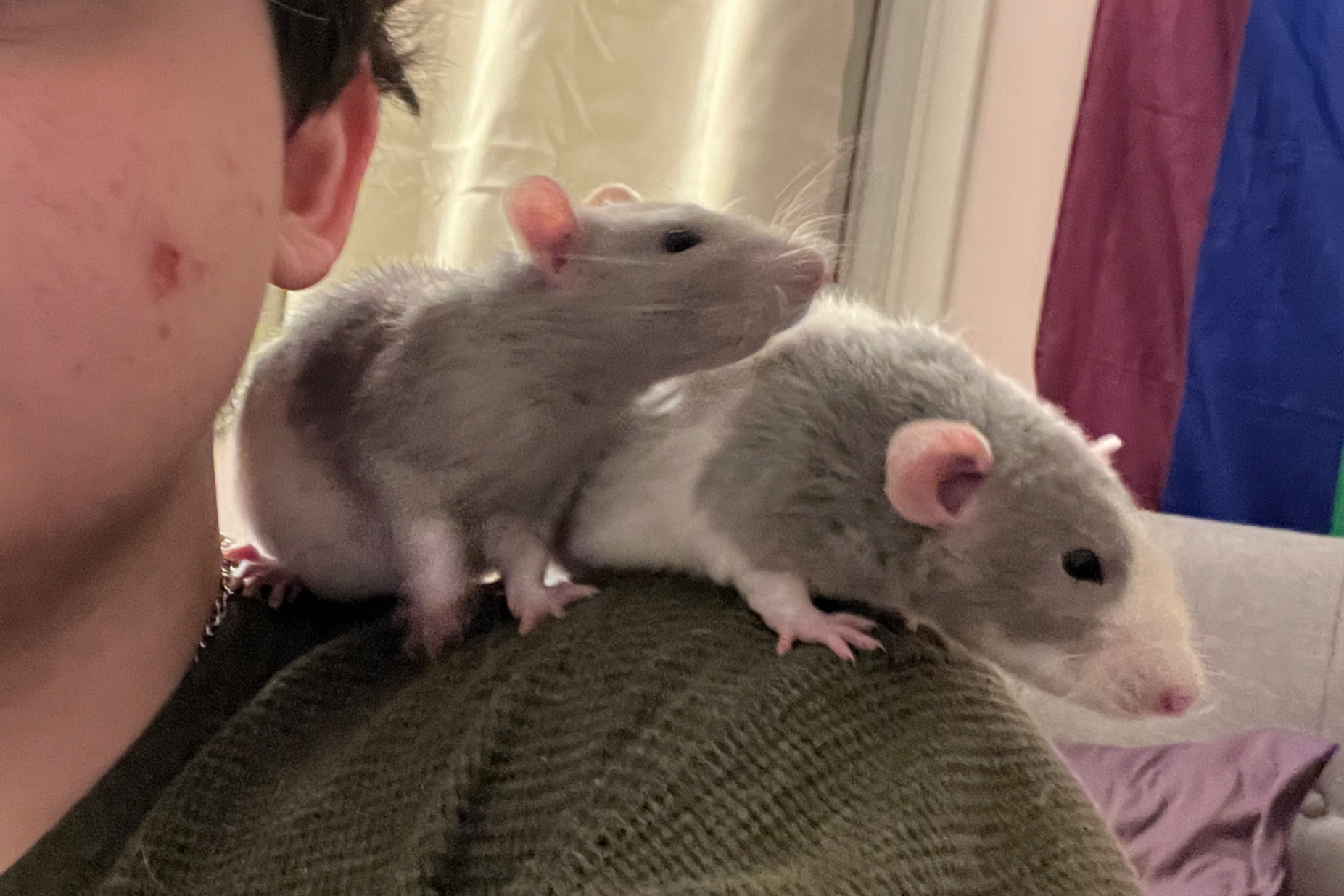
There’s a common idea that rats are big biters. However, rats are commonly regarded as the rodent least likely to bite. Hamsters are far more likely to bite than rats. Rats will only attack when frightened or if they mistake your hand for food. Usually, rats will gently nibble you when grooming and cleaning you or just as a general sign of affection. It does not hurt at all and is very adorable.
With rats being one of the most studied animals on earth, it is no surprise that there are plenty of studies that attest to rats displaying empathy.
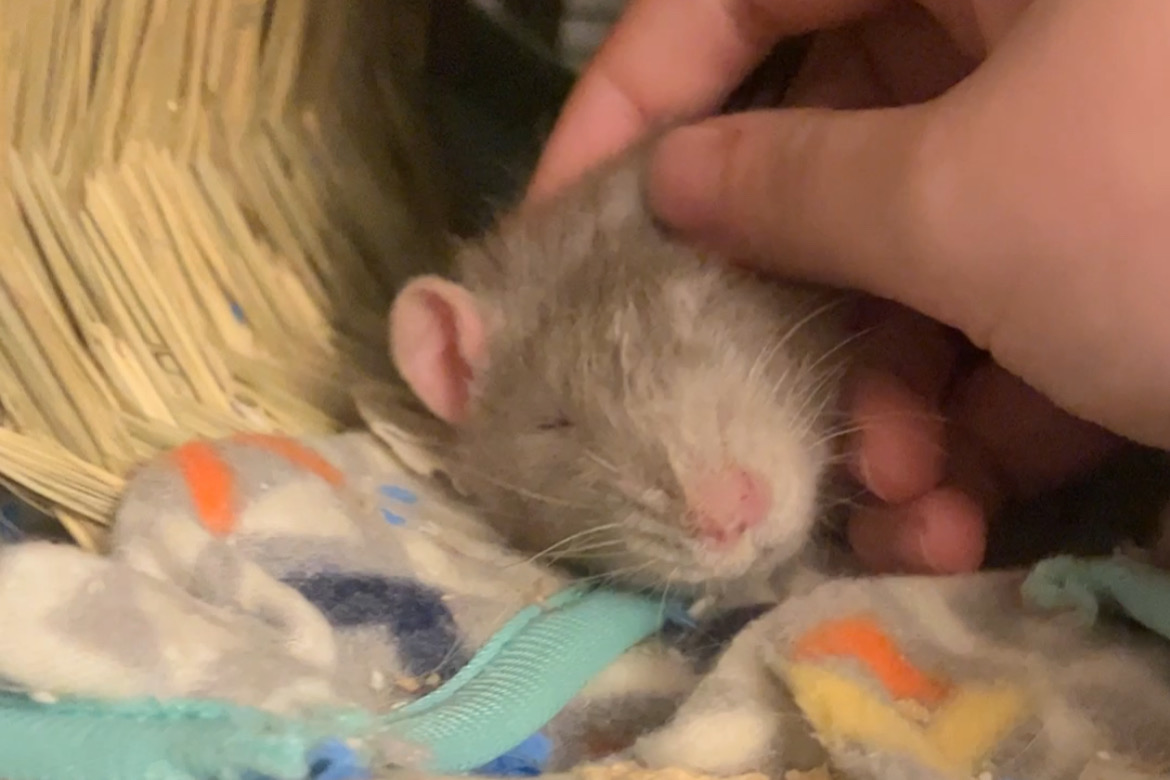
In the Netherlands, a study was conducted to demonstrate harm aversion in rats. The rats were given two levers that distributed treats and once it was clear which lever the rats had a preference for, the researchers reworked the preferred lever to shock another rat. Immediately, rats stopped using the lever, even when candy was given to them for using said lever. As soon as a fellow rat, stranger or friend, was in pain, the rats chose to stop pulling the lever if it meant hurting others.
Similarly, in a study from 2011, rats chose to free captive rats before getting food. One rat would be placed in a small tube and another rat would be free. Through trial and error, the rats figured out how to open the tube and release the rat inside. Rats would do this before exploring their new surroundings, preferring to free the trapped rat and explore together rather than alone. When it came to toy rats in the tubes or empty tubes, the rats would ignore it, only opening the tube when a fellow rat was inside. Even sweeter, the rats would release the trapped rat, even if the other rat was in a separate cage. They were not looking for play buddies or treats, they just genuinely wanted to help. Best of all, when presented with two tubes, one containing a rat and the other holding chocolate chips, the rats still chose to free the other rat and share the snacks instead of keeping them for themselves.
Rats are very social creatures, just like humans, and they need to be kept in pairs of two or more. They form deep bonds with cagemates, and even mourn them when they pass. All of this is to say rats care and they love deeply. They are very empathetic creatures who prefer peace over conflict.
Myth: Rats lack personality
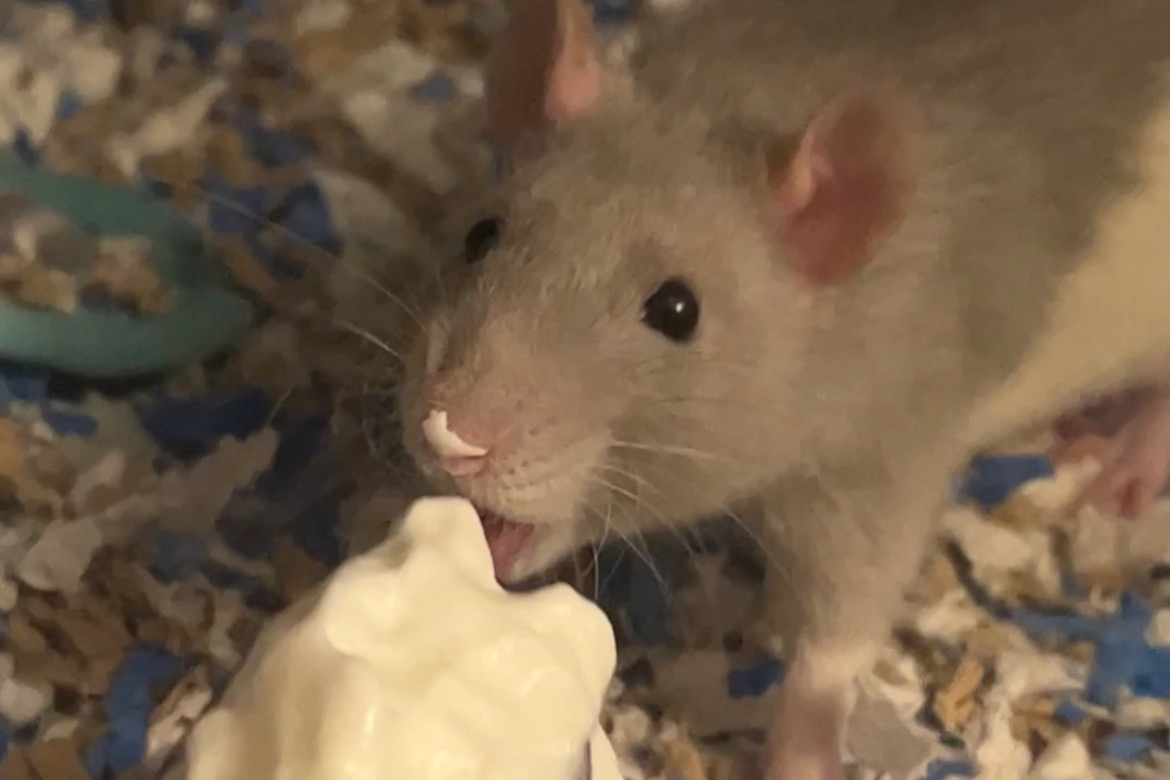
In my years of rat ownership, I have had one rat who was not always the nicest. Charlie and his brother Wilbur were rats I adopted from a rescue. It is very likely that Charlie and his brother were initially feeder rats. This means they were never truly socialized around people and when a hand came into Charlie’s tank to pick another rat up, he never saw them again. Charlie did not like people and he was very afraid of everyone and everything. Thankfully, with lots of TLC, Charlie came out of his shell a bit. He never came even close to as social as my other rats, but every once in a while he would give me a kiss or come out to see me, even crawling into my arms once. He didn’t really like anyone else, but he did like me because I gave him the time he needed. While Charlie and his brother Wilbur have both since passed, it will always stick with me that all it took was some gentle love to coax them out of their shells, even if just a little.
My two current rats, Gummy and Worm, were socialized with people from the moment they were born at NL Rattery in South Bend. These two boys are the sweetest rats to me and everyone they meet. Gummy is rambunctious and playful, always rearing up to hand wrestle as soon as I open the cage door. He is very hyper and when I hold him, he will run from shoulder to shoulder, back and forth, using my arm as a bridge.Worm is much more mellow. He will sometimes join in on the fun, but most of the time he is just happy to be there. Worm is a cuddle bug. If you give him your hand he will cover it in kisses. If you pet him, he will lean right into your hand as if he has never been pet before.
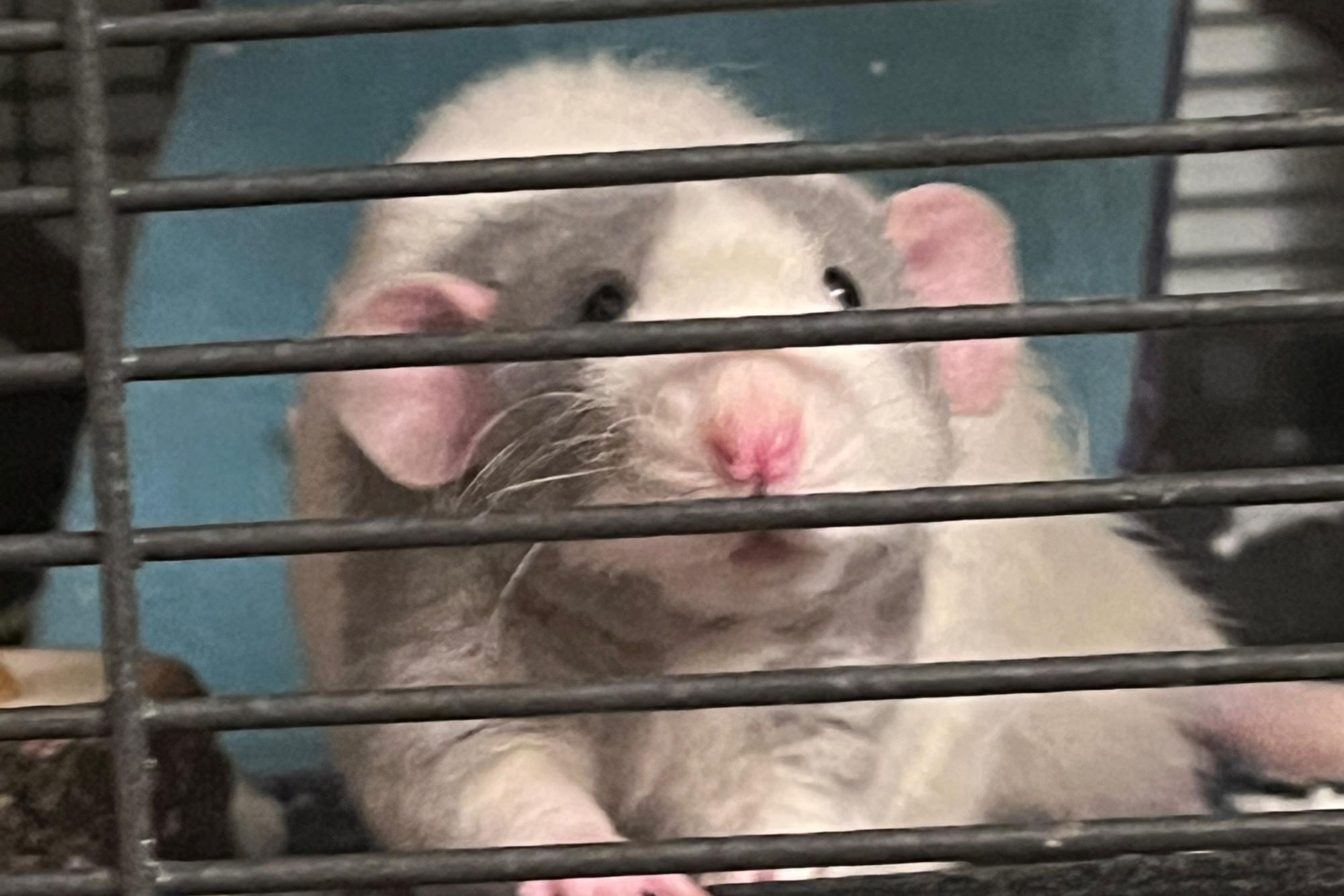
You see, rats are a lot like dogs. In fact, they are nicknamed “pocket puppies” by the rat owners world wide. They fit that name perfectly. Rats are playful, loving, cuddly, and truly are pocket-sized pups! They will get into all sorts of mischief and turn anything into a toy if given the chance. Whenever I enter my room, whether coming home from school or just from the living room, my favorite duo will run up to the cafe door, eager to greet me like they have not seen me in ages. Every single rat I have had has something that makes them unique. Like snowflakes, no two rats are the same.
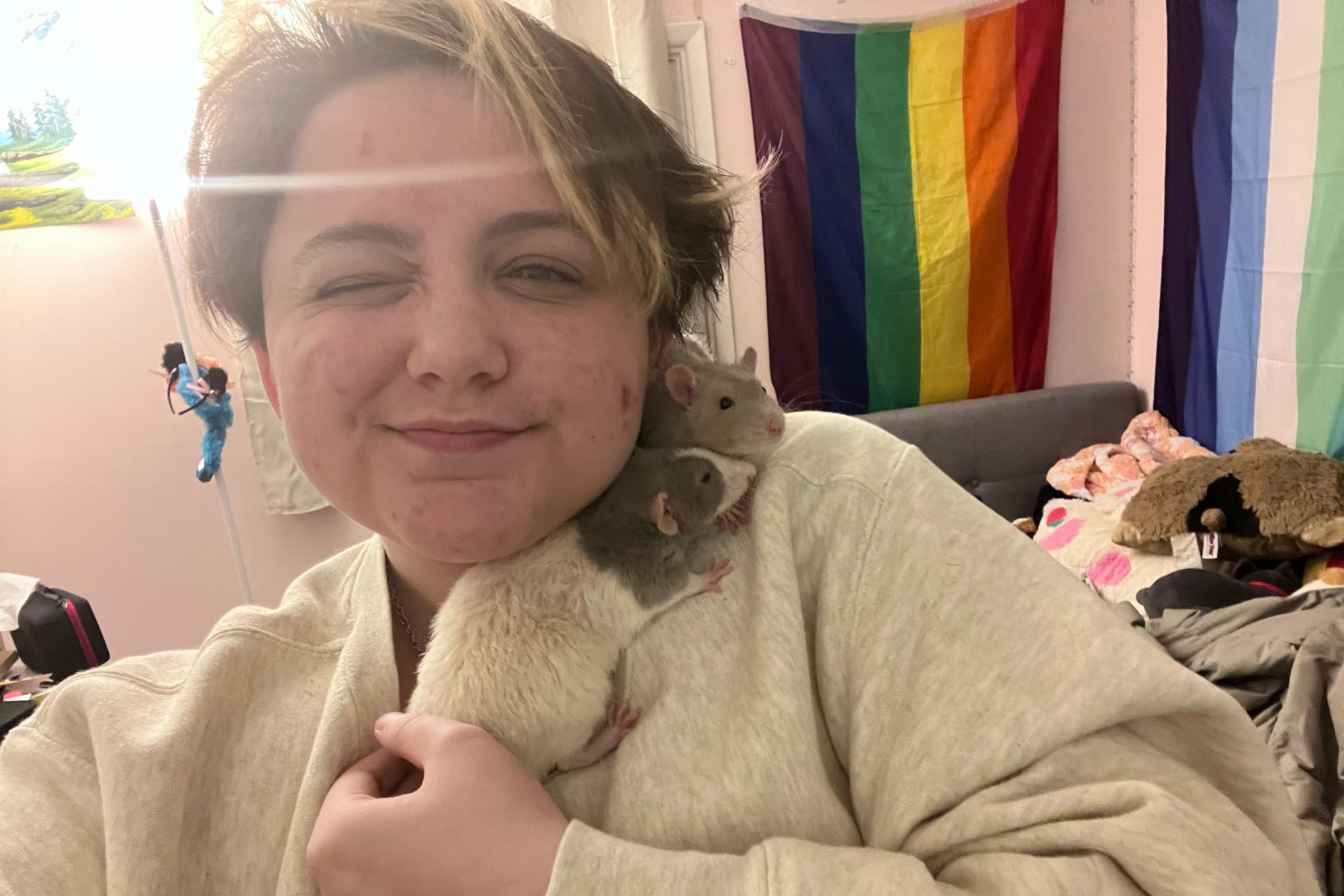
Some of my favorite rat facts (Lightning round):
- When happy, rats grind their teeth (aka bruxing), the pressure causing something called “boggling”, a rapid vibration of a rat’s eyes.
- Rats can blush! Their ears turn pink when happy or content.
- Rats utilize their tails to balance themselves and thermoregulate. Their tail is actually a part of their spine.
- When happy, rats will sometimes hiccup!
- When especially excited, rats will jump around. This is called popcorning. If you have a dog, you’ve likely seen them get “the zoomies”. Rats do the exact same thing.
- Rats teeth grow throughout their entire lives.
- Domesticated rats are called “fancy rats.”
- When tickled, rats actually laugh, it’s just too high for us to hear it. Here’s a pitched down version. They do the same thing when hand wrestling, playing tag and playing hide and seek.
- There is a temple in India named the Shree Karin Mata Temple and it houses an estimated 25,000 rats as they are revered as holy. They call them the Kabas.
- A pack of rats is called a mischief!


